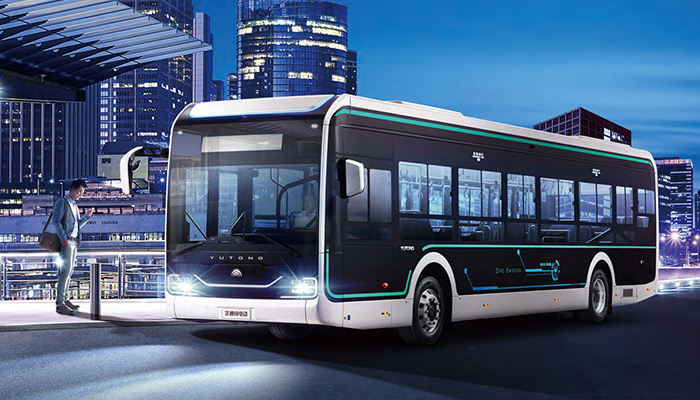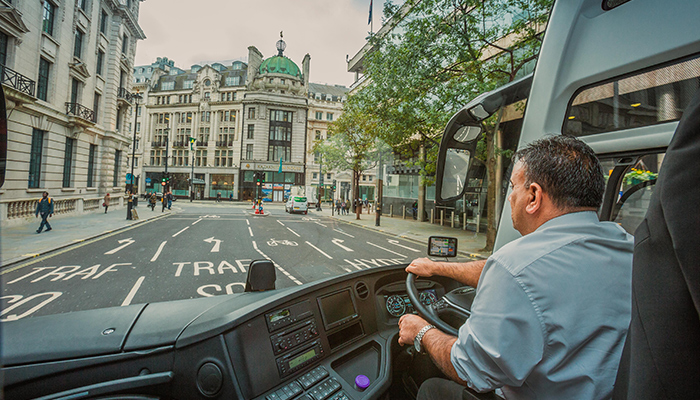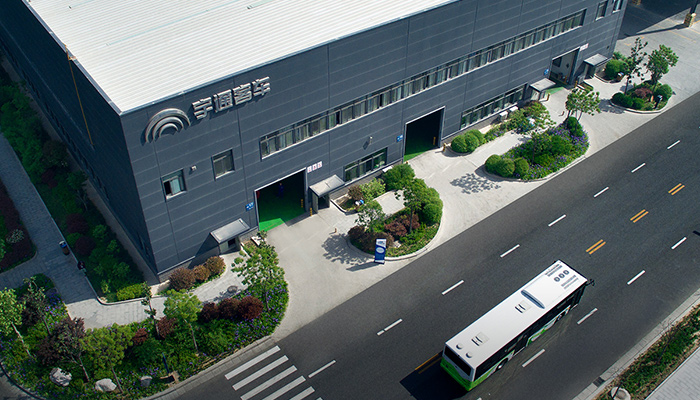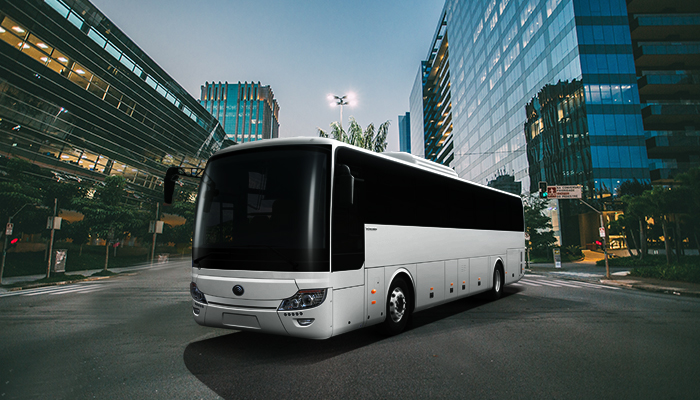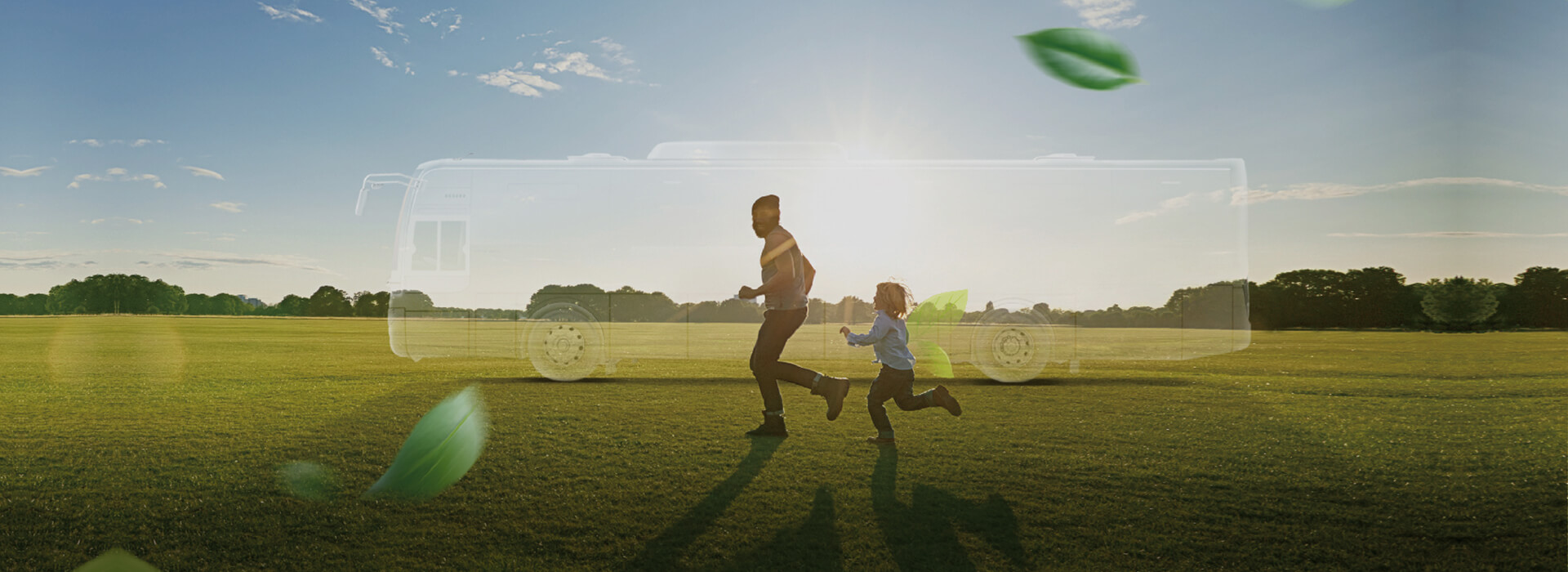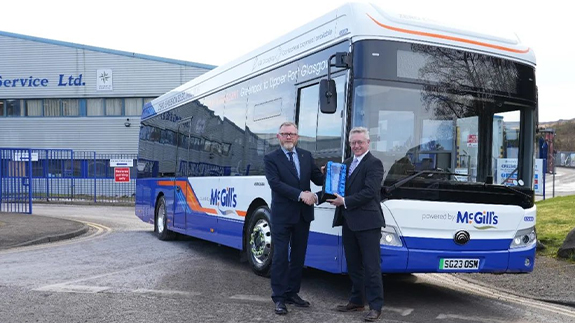Yutong, a leader in electric bus manufacturing, made a splash at the GSE Expo Europe from 17-19 September 2024, showcasing its latest battery-electric apron bus. A key moment at the expo was Yutong’s strategic partnership agreement with Air Rail, signaling a significant shift towards electric apron buses amidst a broader market still unfamiliar with their benefits over diesel models.


Comparative Insights: Electric vs. Diesel Apron Buses on Cost, Emissions, and Noise
Cost
The higher upfront cost of electric apron buses is often offset by their long-term economic benefits. This is largely attributed to the volatile and typically high costs of oil, coupled with the frequent need for engine component replacements in diesel vehicles. Data from The World Resources Institute suggests that the Total Cost of Ownership (TCO) for electric buses is more favorable than diesel, with expectations that this gap will expand as technological advancements and economies of scale are realized.
Emissions
Diesel engines are bound by Euro III emission standards, which limit NOx emissions to 5g/kWh. However, real-world emissions can deviate significantly based on driving conditions, maintenance, and vehicle age. Electric apron buses produce zero tailpipe emissions, thereby mitigating not just NOx but also particulate matter and other pollutants. This reduction translates to lower ambient air pollution and fewer health issues such as asthma, cardiovascular diseases, and premature mortality.
Noise
A study by a public transport authority reveals that diesel bus cabin noise levels span from 68.5 dB to 90.6 dB, comparable to the din of a busy street. Such noise level may cause hearing problems over time. Electric apron buses, on the other hand, offer a significantly quieter operation, providing a more relaxed travel experience.
The Comparative Advantage of Battery Electric Apron Buses
Battery electric apron buses offer compelling advantages over their diesel-powered counterparts, making them an ideal choice for airports pursuing cost-effective and environmentally friendly transportation options:
Lower TCO: Battery electric apron buses, with their potential for significant savings on fuel and maintenance, can offer a lower TCO compared to diesel models, translating into long-term financial benefits.
Zero Emissions: These electric buses eliminate tailpipe emissions, contributing to improved air quality within the airport vicinity.
Noise Pollution Reduction: Without noisy diesel engines, battery electric apron buses offer a more comfortable and less stressful passenger experience during trips throughout the airport.
Efficient Scheduling: The simplified mechanical structures result in fewer breakdowns and less downtime, allowing for more efficient scheduling.
Yutong’s AB14E: Pioneering Sustainable Airport Transportation
Yutong, the global leader in new energy commercial vehicles, offers a diverse range of vehicles, including city buses, coaches, and special purpose vehicles. With a focus on technological innovation, Yutong is committed to providing low-carbon transportation solutions worldwide. The second-generation 14-meter apron bus AB14E exemplifies this commitment. Capable of seating 114 passengers, this vehicle offers an eco-friendly transport experience. It excels in the following aspects:
Safety
AB14E features a new generation of high-safety, ultra-high-energy batteries, motors, and electric controls, all rated at IP68+IP6K9K. This ensures exceptional protection against dust and water ingress. Its unique nitrogen protection system eliminates the risk of internal combustion. A 24/7 battery monitoring system constantly track the battery’s status. The robust closed-ring structure and the whole vehicle’s disc axle further enhance safety.
Comfort
AB14E has a highly comfortable and ergonomic design, with brand new seats and a more spacious driver and passenger compartment. It incorporates a high-efficiency AC system and a multi-dimensional suspension system, contributing to comfortable and convenient driving and riding experience.
Green
AB14E employs new battery cells and electric control systems, YEA technology, aluminum framework, composite materials, and other light-weighting technologies. This makes AB14E more energy-efficient and eco-friendly with an extended range and service life.
As Europe’s first batch of battery electric apron buses, AB14E epitomizes the vanguard of sustainable mobility. It not only excels in safety and comfort but also sets a benchmark for sustainability. With its suite of compelling features, AB14E is primed for global deployment, signifying a pivotal step towards sustainable transportation.

Conclusion
Battery electric apron buses offer lasting benefits, such as lower operating costs and fewer emissions, despite a higher higher upfront cost.
In the future, Yutong will continue to provide new options for the development of the global new energy industry and green transition. Yutong will work with its partners to keep enhancing products and services, meeting social responsibilities and delivering efficient transport options for all.

